
-
Find the right food for your petTake this quiz to see which food may be the best for your furry friend.Find the right food for your petTake this quiz to see which food may be the best for your furry friend.Featured products
 Perfect Weight Small & Mini Adult Dog Food
Perfect Weight Small & Mini Adult Dog FoodHill's Science Plan Adult Small & Mini Dog Food with Turkey is a complete premium pet food for adult small dogs from 1 year old that are prone to weight gain or slightly overweight. This deliciously smooth mousse is formulated to deliver the appropriate amount of energy to support weight maintenance in adult dogs.
Shop Now Perfect Digestion Small & Mini Adult Dog Food
Perfect Digestion Small & Mini Adult Dog FoodHill's Science Plan Perfect Digestion Small & Mini Adult Dog Food with Turkey is a complete premium pet food for small breed adult dogs aged 1–6 years. This deliciously smooth mousse is precisely balanced to deliver the appropriate amount of energy and to support digestive health in adult, small breed dogs.
Shop Now Hypoallergenic Small & Mini Adult Dog Food
Hypoallergenic Small & Mini Adult Dog FoodHILL'S SCIENCE PLAN Hypoallergenic Small&Mini Adult dog food with Salmon is complete pet food for adult small dogs 1–6 years old. It's formulated for dogs with delicate skin and stomach, with limited high quality novel protein sources & no grain.
Shop NowFeatured products Sterilised Mature Adult Cat Food
Sterilised Mature Adult Cat FoodHill's Science Plan Sterilised Cat Mature Adult Cat Food with Chicken is specially formulated with ActivBiome+ Multi-Benefit Technology. It is a precisely balanced nutrition tailored to meet the needs of mature adult sterilised cats, ages 7+, and to promote graceful ageing.
Shop Now Urinary Health Adult Cat Food with Chicken
Urinary Health Adult Cat Food with ChickenHill's Science Plan Urinary Health Adult Cat Food with Chicken supports the health of the whole urinary system. Suitable for sterilised cats.
Shop Now Oral Care Adult Cat Food
Oral Care Adult Cat FoodHill's Science Plan Oral Care Adult Cat Food with Chicken contains clinically proven kibble technology to reduce plaque & tartar build up.
Shop Now -
Dog
- Dog Tips & Articles
-
Health Category
- Weight
- Food & Environmental Sensitivities
- Urinary
- Digestive
- Joint
- Kidney
-
Life Stage
- Puppy Nutrition
- Adult Nutrition
- Senior Nutrition
Cat- Cat Tips & Articles
-
Health Category
- Weight
- Skin & Food Sensitivities
- Urinary
- Digestive
- Kidney
-
Life Stage
- Kitten Nutrition
- Adult Nutrition
Featured articles Virtual Vet Visits: What You Need to Know
Virtual Vet Visits: What You Need to KnowLearn the ins and outs of a televet appointment before you talk to a vet online.
Read More Tips For Mixing Wet And Dry Pet Food
Tips For Mixing Wet And Dry Pet FoodDiscover tips for mixing wet and dry pet food to ensure balanced nutrition and variety for your pet. For comprehensive feeding advice, visit Hill's Pet UK.
Read More Develop your gut instinct | Hill's Pet
Develop your gut instinct | Hill's PetDigestive disorders can affect any part of the digestive system, from the stomach, small intestine and through to the large intestine.
Read More -


You may tease someone for being a "scaredy-cat" or even get a chuckle when something startles your cat and makes them jump. But a fearful, anxious cat is no joke. Cat anxiety can be a serious problem that compromises your cat’s welfare. If you think you might be dealing with a stressed cat, keep reading in order to understand what's going on and how you can help them.
Cat anxiety explained
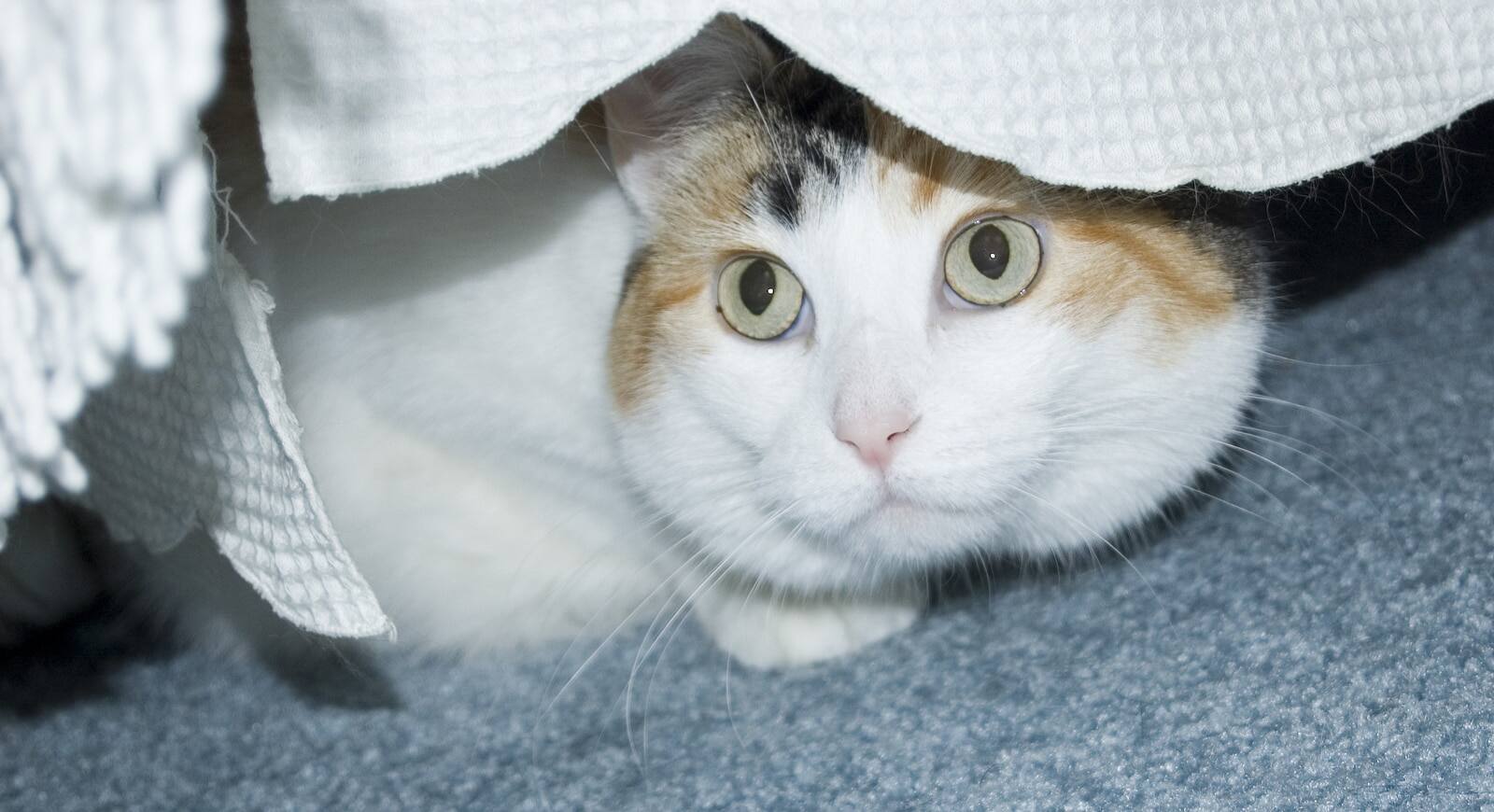
Cats experience anxiety when they perceive a threat, whether real or imaginary, and respond to this threat with typical fear reactions. In other words, an anxious cat may appear stressed and afraid for no obvious reason. However, this doesn't mean that there isn't a reason. It simply means that it may take some time and investigation to determine the cause.
Potential causes for anxiety include pain or illness, psychological stress from living in a multi-cat household, a traumatic experience, lack of proper socialisation, a history of abuse or neglect or declining senses and loss of memory associated with an ageing brain. Joint pain in older cats can also be a source of anxious behaviours, such as hiding or failing to use the litter box. Other potential causes of cat anxiety can include new or moved furniture, a new pet or baby in the home, or even a new home.
So how can you tell if you have an anxious cat?
Signs of stress in cats
An anxious cat isn't too difficult to spot. Here are the common signs and symptoms of general cat anxiety or stress:
- Withdrawal and hiding
- Becoming less active
- Trying to escape
- Loss of appetite/overeating
- Destructive or aggressive behaviour
- Diarrhoea
- Urine marking or litter box avoidance
- Hair loss, sores and lesions resulting from over-grooming
Other signs include weight loss, excessive vocalisation, lethargy and restlessness. Cats are generally solitary creatures and are quite happy spending time on their own. Some cats, however, are very attached to their family and may experience distress related to separation from their owner. If your cat is fine as long as you're around but starts showing anxious behaviours when you do things associated with departure, such as picking up your keys or closing the curtains, you should seek help from a qualified behaviourist.


Tasty Tips
Helping your stressed cat
The first thing you need to know in order to help your anxious cat is that you should never punish or scold them for their anxious behaviour. This will only increase negative associations and fear and make things worse instead of better. It will also damage the bond between you and your cat. The goal should be to help them feel safe and relaxed in their surroundings.
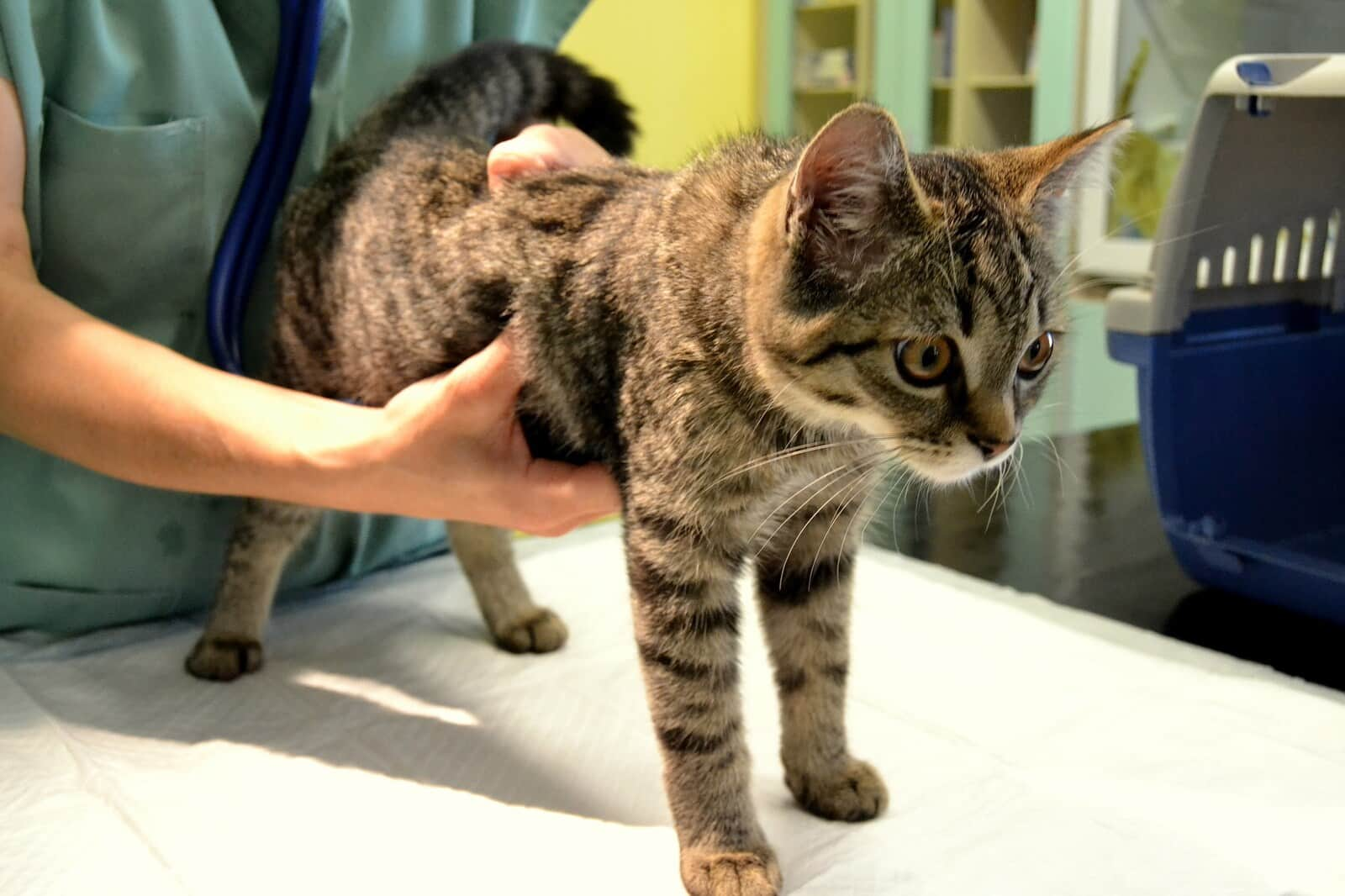 Once you've identified anxious behaviours in your cat, the first step is to make an appointment with your veterinarian to either diagnose or rule out any underlying health issues, such as pain and discomfort, that might be causing your cat stress. Because cats tend to hide their pain, this is not something that is likely to be obvious and may require a thorough examination as well as other diagnostic procedures like blood tests or X-rays. If it turns out that your cat is suffering from pain or a medical issue, treating the issue may be all that's required to resolve their anxiety and help your cat get back to their normal self.
Once you've identified anxious behaviours in your cat, the first step is to make an appointment with your veterinarian to either diagnose or rule out any underlying health issues, such as pain and discomfort, that might be causing your cat stress. Because cats tend to hide their pain, this is not something that is likely to be obvious and may require a thorough examination as well as other diagnostic procedures like blood tests or X-rays. If it turns out that your cat is suffering from pain or a medical issue, treating the issue may be all that's required to resolve their anxiety and help your cat get back to their normal self.
On the other hand, if your vet rules out a physical problem as the cause, this may mean that the issue is psychological. If this is the case, your vet should be able to advise you on a course of treatment.
Your vet may recommend a board-certified veterinary behaviourist if your cat requires anti-anxiety medication or a qualified behaviourist or trainer who can help both you and your cat with environmental management and behaviour modification. Behaviour modification involves identifying the triggers for anxiety in your cat’s life in order to create a new, positive emotional association through the process of desensitisation and counter-conditioning to these triggers. Environment management involves changing the environment to avoid a behaviour problem, such as removing anxiety triggers from the environment. For example, if your cat is anxious about trips in the cat carrier, you can reward them with a favourite toy or treat whenever they choose to hang out in or near the carrier. In time, they’ll associate the carrier with these positive rewards and no longer be anxious when they go inside. The overall goal of this training and conditioning is to teach your cat that they're safe and that it's okay to relax. These kinds of behavioural modifications must be done under expert guidance. If done in the wrong way, you risk reinforcing the fear or anxiety and may make the situation worse.
Multi-cat households: a common cause of stress and anxiety
Multi-cat households deserve a special mention because living with other cats nearby, even in the neighbourhood, is a major cause of stress and illness in cats. As previously mentioned, cats are solitary creatures by nature and generally view other cats as a threat to their precious resources. Having only one cat is probably the best thing you can do to try to prevent stress and anxiety in the first place. If you do have a multi-cat household and you have one or more cats showing signs of stress, try the following to help reduce conflict and stress:
- Have multiple food and water stations around the house in quiet places. You should have one more of these stations than the number of cats in the home.
- Multiple litter trays – again, one more than the number of cats. These should be away from food and water and in secluded places.
- Use shelves and furniture strategically placed in hallways and passages so the cats can pass each other at different levels.
- Have more than one cat flap if possible so that dominant cats can’t obstruct access to the outside for the more timid cats.
- Provide plenty of elevated hiding places and beds so that all the cats can get away from each other whenever they need to.
- Consider rehoming. Sadly, some cats just don’t cope well living with other cats. For these cats, a new home where they can feel safe and relaxed may be the best option.
- Nutrition. There are certain therapeutic foods with natural additives that can help alleviate stress in cats.
- Allow safe access to the outdoors. Indoor living is a big cause of stress in many cats, even if they live alone.
If left untreated
Untreated anxiety won't get better on its own and will likely become worse over time, with undesirable behaviours becoming more pronounced. Just as with humans, chronic stress can have a myriad of effects on your cat’s physical health. If it persists, it could compromise their immune system and make them more vulnerable to illness, which will, in turn, compound the stress, leading to additional behavioural problems. It's not only in your cat's best interest to address any anxiety as quickly as possible but also in yours, so you can maintain the peace of your home.
If you think your cat is suffering from anxiety, take heart. With love, patience and assistance from qualified professionals, you can help your cat to live a healthier, happier life.
Reviewed by Dr. Hein Meyer, DVM, PhD, Dipl-ECVIM-CA and Dr. Aileen Pypers, BSc, BVSc, PGDip.


Jean Marie Bauhaus is a pet parent, pet blogger, and novelist from Tulsa, Oklahoma, where she usually writes under the supervision of a lapful of fur babies.
Related products

Hill's Science Plan Urinary Health Adult Cat Food with Chicken supports the health of the whole urinary system. Suitable for sterilised cats.

Hill's Science Plan Oral Care Adult Cat Food with Chicken contains clinically proven kibble technology to reduce plaque & tartar build up.
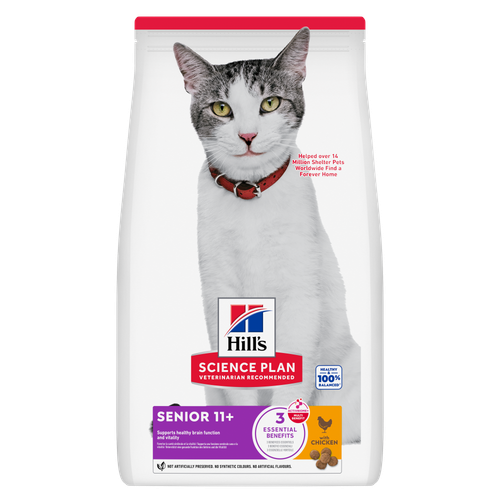
Hill's Science Plan Senior Cat Food with Chicken is a complete pet food, specially formulated with ActivBiome+ Multi-Benefit Technology.
This food supports healthy aging during the golden years. Contains a special ingredient blend to help keep older cats agile, more alert & interactive.

Hill's Science Plan Sterilised Cat Mature Adult Cat Food with Chicken is specially formulated with ActivBiome+ Multi-Benefit Technology. It is a precisely balanced nutrition tailored to meet the needs of mature adult sterilised cats, ages 7+, and to promote graceful ageing.
Related articles
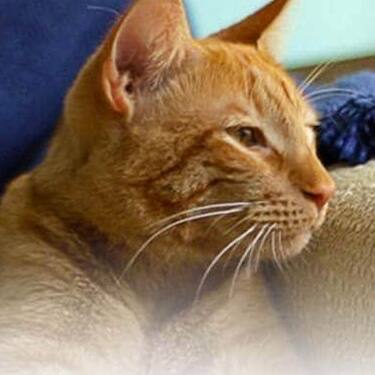
Find the right Hill
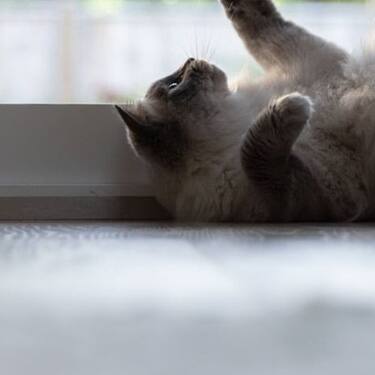
Feeding time can be a wonderful bonding opportunity for you and your cat. Find out how to make the most of it and create a healthy habit with HIll's Pet UK.
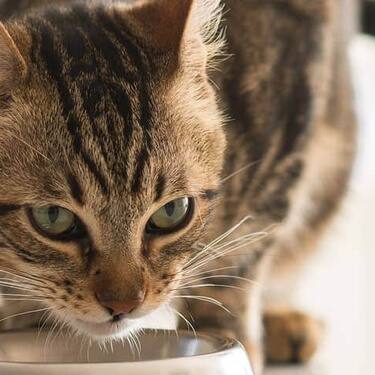
Discover what you can do to spot and support a sensitive cat stomach. See what routines and food you can implement to help your cat be happy and healthy.
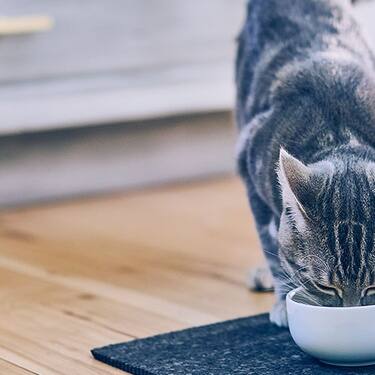
Good nutrition is about the right balance of nutrients. Learn more about health issues when feeding a cat food that has an improper nutritional balance from your friends at Hills Pet Nutrition.

Put your cat on a diet without them knowing
Our low calorie formula helps you control your cat's weight. It's packed with high-quality protein for building lean muscles, and made with purposeful ingredients for a flavourful, nutritious meal. Clinically proven antioxidants, Vitamin C+E, help promote a healthy immune system.
Put your cat on a diet without them knowing
Our low calorie formula helps you control your cat's weight. It's packed with high-quality protein for building lean muscles, and made with purposeful ingredients for a flavourful, nutritious meal. Clinically proven antioxidants, Vitamin C+E, help promote a healthy immune system.

